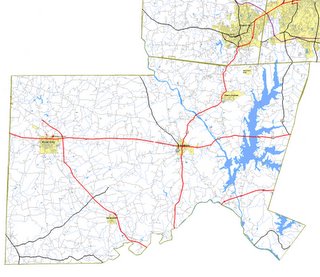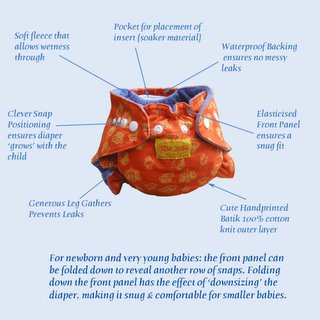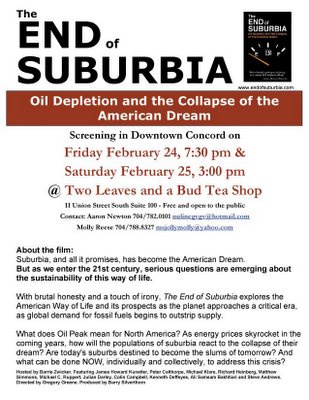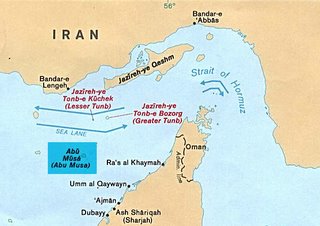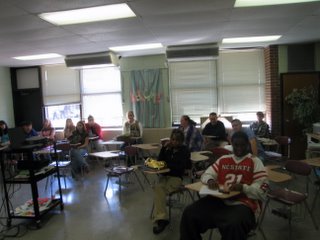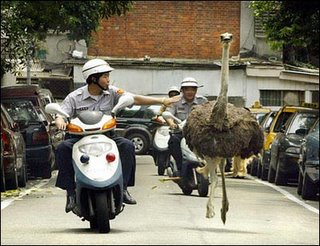
This weekend I painted the crib and planted the early crops for the garden.
It rained and snowed a bit so I didn’t work the soil but planted instead in the greenhouse in which my mother has agreed to share space with me.
Here near
Charlotte we have an official last frost date of April 15
th but usually the last frost of winter happens in March or early April.
Often we get cold weather in March and hot weather in May.
Spring slips by so quickly that if you want to grow cool weather crops you have to be ready and you have to start early.
I planted the cool weather crops and some of the warmer weather crops that have to be started indoors.
A quick examination of our financial status shows that it makes more sense for me to earn money and for my wife to stay home; that is if we want to raise our child in our own way and if we want to feed her breast milk easily.
In the short term anyway this is the arrangement we’ve come to agree upon.
This means my idea of working the land for what I can grow will have to take a side seat to the necessity of earning money so that I can pay bills.
But enough whining.
I am going to have to do both this year. I am going to have to grow food for us and help raise the baby. I am planning to get help from my wife but an interesting fact has emerged from our current conversations on gardening. So much of farming, or gardening or whatever you call growing you own food comes out of intensely personal experiences. I live with this woman. She has watched me work in the garden and yet she is a stranger to the idea of growing her own food. You would think my daily deliberations with her or even my out loud discussions on gardening problems, issues, concerns, conflicts, and achievements would be enough to instruct her on the basic principles of growing one’s own food. Not so. “No learning takes place until it happens in the muscles”, my mother used to say. She was right. I can explain with these words, with these keystrokes, what it looks like when the soil is too wet to work but only experience can accurately describe the phenomenon. A major separation from the soil spells disaster for any society, eventually.
Earlier today I listed the vegetables I am going to grow this coming season. I wrote five pages with varying degrees of detail about what’s coming up in my garden this year. I realized through that exercise what a waste it is to sit and consider writing about a grand thought or idea. I have been discussing this blog with a friend and have become self-critical about what I write almost overnight. How silly that seemed until I sat down to do my next post. It seems difficult if not impossible to simply stop and write an extremely altering piece of journalism. What I found remarkable though was the fact that after troubling over this truth, when I tried to just write the most mundane facts about what I will plant and how it will grow, my mind wandered out onto other trails where I found direction and the overview that had previously eluded me. It was in the act of simply listing that the inspirations came. From this revelation came a better understand, in a new way, of something that was written on a poster my mother put up when I was young. The caption read, “The smallest good deed is better than the grandest good intention.” I have an even better understanding of that poster today. I would like to have written a great post today about how you might plant what will support you and your family in terms of the food you need and its possible scarcity sometime in the future. The truth is that today was better spent planting my own food and thinking about how to do it and writing it down. Not because I don’t care about how well you will do with your own garden this year. I do care. The point though is that only through action comes the ability to share.
I am going to grow quite a bit of food this coming season. I am going to weigh it. I have several strategies I would like to share with others interested in doing the same or something similar. I will copy, at the end of this email, the previously mentioned list of vegetables I am going to grow. I am however going to continue to try and convey more than the facts concerning the coming peak in global production of oil. There will be plenty from others about how to cope and the logistics of how to meet human needs in the upcoming upheaval. There will be more about gardening and soil temperatures and seed start dates but not with the idea that a paradigm shift has happened. I will write about how to raise a child with the idea of place within nature restored and not merely a recalling of daily events in the interest of documenting the end of oil and the coincidence that my child was born as global production peaked. Even if I wanted to I don’t believe I could sit down each evening and just spit out daily events in the face of a change. It would bore me to tears. What I can do, what I’d like to do, what apparently I must do is detail the overall effect these changes have on me and in so doing reflect the effects they are having on many of us. Perhaps I can affect change in the understanding of our behavior while affecting change in our behavior itself. I think that might be key. Perhaps the only way to affect change is to change and then maybe to point to it as an example. Gandhi said, “Be the change you see in the world.” I will follow that and I will write about it not that you the reader should feel compelled to do as I have or think as I do, but that you will think for yourself and figure out in your own way what might make sense to do in response to the coming change in our way of life. I appreciate your willingness to let me work this out in public and your interest in this issue.
[Update] I just realized I forgot to mention what a beautiful person my wife is and how hard she is working right now to grow our baby. I also thought I'd mention that while gardening isn't her speciality she is a talented vocalist and a gifted teacher and coach. Come to think of it I'm not sure how she would even have time to begin to garden. I am supremely grateful for her however and am thankful especially for her willingness to let me follow my heart; even when it takes me out into the yard and back inside with muddy shoes. I didn't want this post to give a false impression of her.
Garden plans.
I thought I would share my preparations for this year’s vegetable garden.
Asparagus – this is the third year the crop has been in the ground and I’m hoping for a more spears.
Beans – I like to use the climbing varieties. They save space. This year I am growing Kentucky Wonder as always. This staple heirloom is an excellent producer and has only one weakness to date in my garden- Japanese beetles. Luckily they like Mourning Glories more. Each year I grow Flying Dragons which are tall bamboo poles used to support towering mourning glory vines. There beautiful, fun and they provide a target for the dreaded Japanese beetles. Back to beans, Kentucky wonder, Cornfield beans, Royal Purple (the only bush beans) and King of the Garden Pole Lima beans.
Beats – Detroit Red
Broccoli – I have never had great success with broccoli. This year I’m trying De Cicco. Our problem here in North Carolina is short springs One day it’s cold the next day it’s hot.
Cabbage - Undecided
Carrots – I am again growing Nantes Half Long. They work for me. This year I’m going to try and save seeds from my own. Any suggestions would be welcomed as I still have some of last year’s crop in the ground. They never flowered.
Celery – This goes into the experimental category. I’m going to try growing Tendercrisp from seed.
Collards – Undecided
Corn – This year I am growing Golden Bantam and Ashworth Corn. I may add a third variety. More on the Corn/Bean/Squash combination later.
Cucumbers – I am growing Japanese Climbing Cucumber and maybe another. I have had repeated troubles with boring grubs and am trying two strategies this year to combat them. First I am growing climbing Cucumbers. Hopefully the lack of ground contact (not to mention the space I’ll save) will help prevent the little buggers from getting in the vines. Secondly I’m using beneficial nematodes to kill the borers. I might try pickling this year. Again any suggestions welcomed.
Eggplant – I love growing eggplants. They are so easy and tasty, especially fried. I learned a lesson last year- do not start them too early. The plants might survive so you‘ll think you’ve gotten a jump on the season but the plants will be slow to produce if they produce at all. Wait until it’s warm. This year I’ll grow Black Beauty and Ping Tung, maybe another.
Garlic – I am not sure the variety I am growing. I have been growing one hard neck and one soft neck variety for several years, using my own stock for planting in the fall. We have had a mild winter and both have put on quite a bit of foliage. I never seem to plant enough.
Lettuce – Last year was a break out year for me and lettuce. I stopped focusing on head lettuce. Hear in the south the short and wet springs couples with slugs always seem to work against head lettuce. Then one day I realized something. I like leaf lettuce better anyway. So I grew a few heads of Iceberg to prove to myself I could and now I’m on to leaf lettuces and loose head lettuces. Last year we had a cool spring and I got great lettuce. This year I am growing: Amish Deer Tongue, Key Lime, Paris White Cos (our staple), Black Seeded Simpson, Buttercrunch, Slobolt and…. Bronze Arrow. The last is a lettuce I have heard great things about for years. Bountiful Gardens says, “A rare, long-standing beautiful lettuce that has it all; we feel it’s one of the best lettuces in the world.” It’s supposed to be slow to bolt among other great characteristics.
Melons – I have a few seeds from last year’s melon and a few given as gifts. I’ll have to see how much room I have later in the season. I also might try growing melons vertically this year.
Okra – I’ll stick with Clemson Spineless; 5 plants this year.
Onions – I have quite a few white and red bulb onions in the ground from a fall planting. Our mild winter has given them a great head start. Looks like I’ll be cooking with more onions this year.! I also received some bunching onions from my sister-in-law. Her family grows all sorts of food in the Marion, North Carolina just at the foot of the Blue Ridge Mountains. I am grateful as these go in the perennial category. Each year I will not only harvest some of these onions but I will get small bulbs to plant for the following year. Hopefully I’ll have enough to pass on the gift of yearly onions to another lucky person. Anyone with Egyptian Walking Onions who would like to trade let me know. These onions form clusters at the top of their stalks which tip over and take root. I’ve been meaning to try some.
Parsnips – A new one for me. I’m growing an unknown variety I bought from a Farm supply store going out of business. We’ll see what happens.
Peas – Last year was a great year for peas. I like the taller-growing varieties. This year I’m growing Homesteader and Amish Snap Peas. I might also grow Black-eyed Beans (peas) and maybe chick peas.
Peppers – I am planning on growing a couple of sweet peppers and a few hot peppers: cayenne, habanera, etc. I always seem to plant too many peppers. It only takes a few to spice up a dish or to use in a salad. They are fun and easy to grow though.
Potatoes – As I focus more on calorie production this year I will be growing potatoes. I have yet to procure my seed potatoes so I’m not sure what I’ll be going. I will be growing them both in the ground as they are traditional grown and using the tire method that worked well last year. Instead of planting them in the ground this second method places them in a tire full of compost. As the potatoes grew I stacked on tires and fill with compost, leaves, soil, etc. Harvesting is easy. I just tipped over the tires. Also the black tires held heat and helped me grow potatoes early.
Sweet Potatoes – How fun. Last year I bought seed potatoes from a gentleman selling them from the back of his pickup truck on a visit to Charleston SC. You have to grow sprouts from the sweet potatoes and then root the sprouts (called slips) and then plant them in the garden. They are a vine and will run all over and shade out weeds and provide wonderful sweet potatoes for you. I’ll be using them to soak up unused space later in the season.
Pumpkins – Maybe in the corn area. They take up so much room.
Radishes – I will grow Cherry Belle again where ever I have bit of space. They liven up a salad.
Spinach – Another favorite of mine. I will be growing Bloomsdale Long Standing and maybe another variety of traditional spinach but also New Zealand Spinach. This is more of a bush type plant used by Captain John Cook to prevent scurvy. It is suppose to endure heat and produce lots of edible leaves. It may even perennialize (come back each year) in the Charlotte area. I’ll see.
Squash – I’ll be growing crocked neck yellow squash and zucchini if I can take care of the borer problem; maybe more vertical produce.
Tomatoes – Two years ago my wife ate 6 or 8 a day and we still canned. Tomatoes are just a blast to grow. Learning from past years I’m really going to mix it up and grow one or maybe two of the each of the varieties I want. I have a few personally saved seed varieties. I’ll be sure to try and grow another one of those cherry tomatoes that volunteered in the backyard last year. It produced enough small tomatoes just by itself to keep us easting cherry tomatoes everyday for 3 months. I just gave the chickens the last of the green ones I picked before frost if you can believe that. They had ripened but didn’t look fit for human consumption. Anyway back to tomatoes, I’ll be focusing on a getting a few early varieties going and also growing mainly high-yield varieties with a few lower-producing varieties that just have great fruit. I am also growing a few yellow varieties with lower acid concentrations for my mother-in-law. It’s a smart move for me and I like pulling up to my house and catching her in my garden “stealing” tomatoes. It’s a great notion to keep in my back pocket to reminder her of laterJ I grow about 8 or 10 different types. If you’re new to gardening start with tomatoes. They are easy and very rewarding.
Turnips – I am growing White Egg turnips this year. Not as exciting as tomatoes but a great calorie producer.
Watermelon – If I have space.
Yacon – This staple from the Andes is a new one for me this year. It’s a perennial tuber. It’s supposed to be like crossing a potato and a watermelon whatever that means. It’s high in water content and tastes like a water chestnut. It’s an experiment and also a way to grow more plants that come back year after year. Oh and it grows 4’+ stalks with beautiful yellow flowers.
Those are the vegetables. I am also going to experiment with Millet, Hard Red Spring Wheat, Flax, and Rice. I’ll use the organic material for composting and will get to see what growing these grains is like. I will also be growing peanuts, sunflowers and maybe alfalfa and mung beans in small amounts for experimentation. In the herb category I am growing basil, oregano, thyme, sorrel, arugal, chives, lemon balm, lemon verbena (a must for anyone who likes tea!) parsley, rosemary, and several types of mint. Plenty of marigold again this year to help with the pests and to add coulour to salads.
The peach tree will probably produce and I’ll get to see if the apples and the pears produce. The grape vine is a few years off I bet. This is the most boring list of gardening I have ever read.









